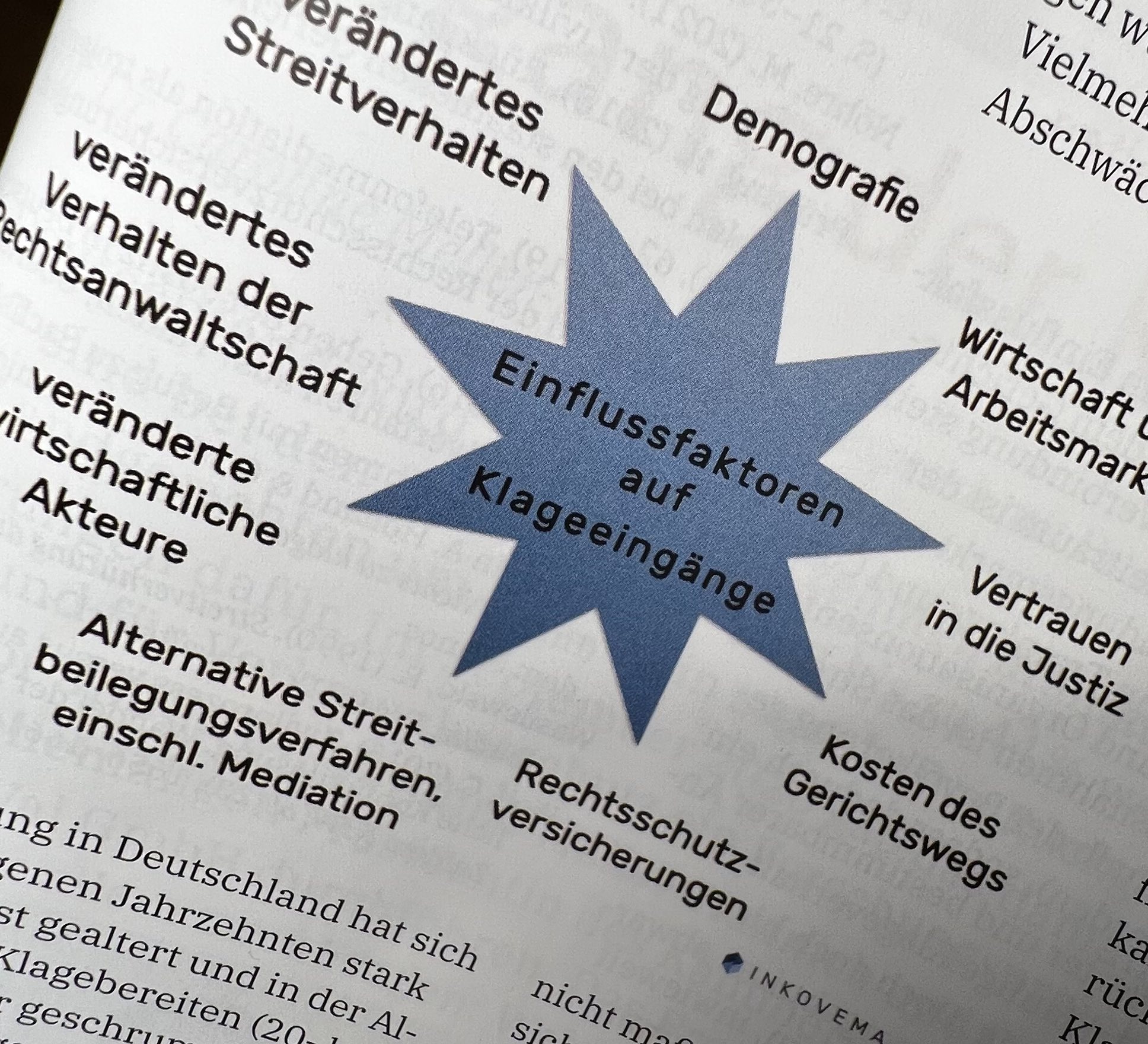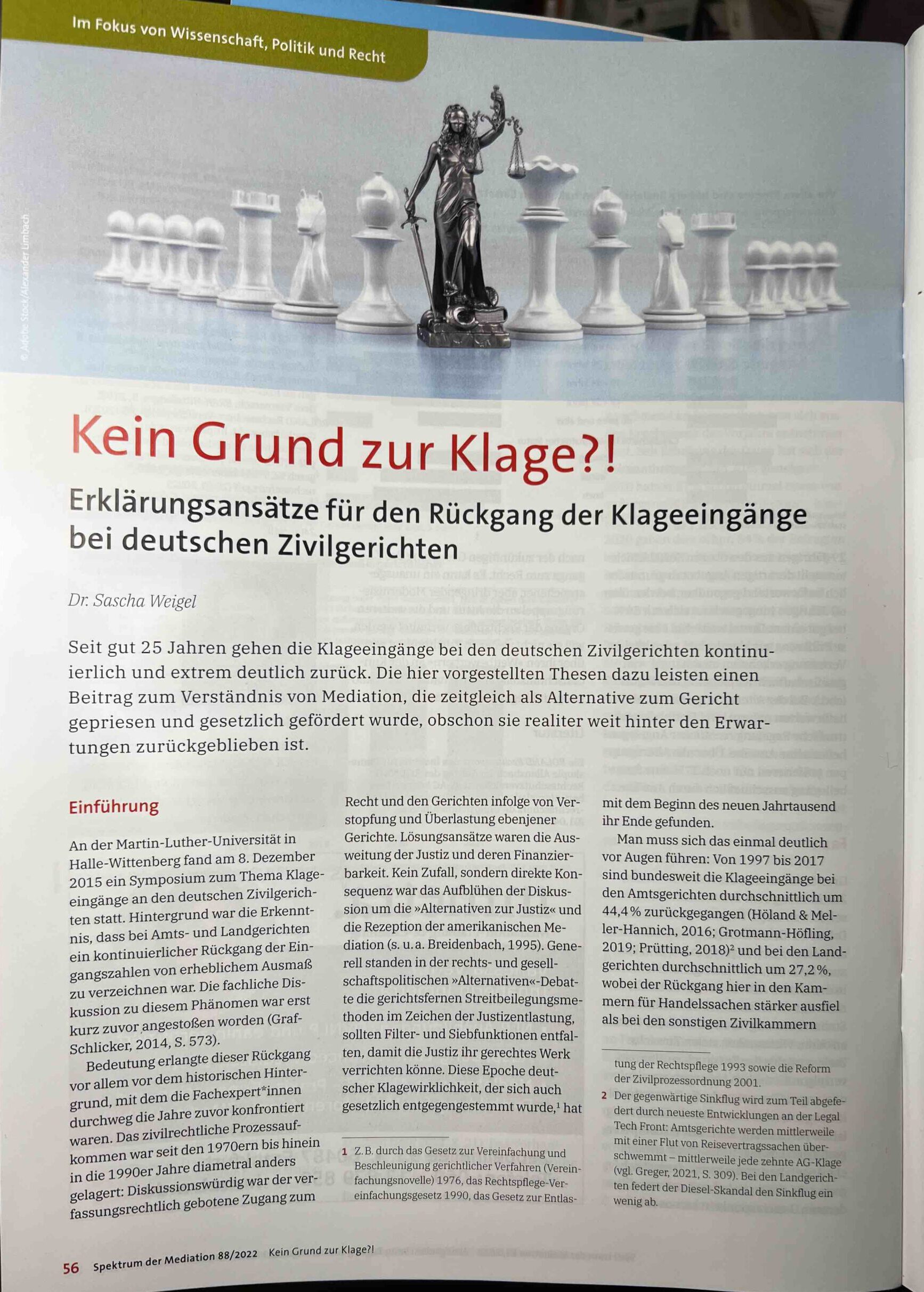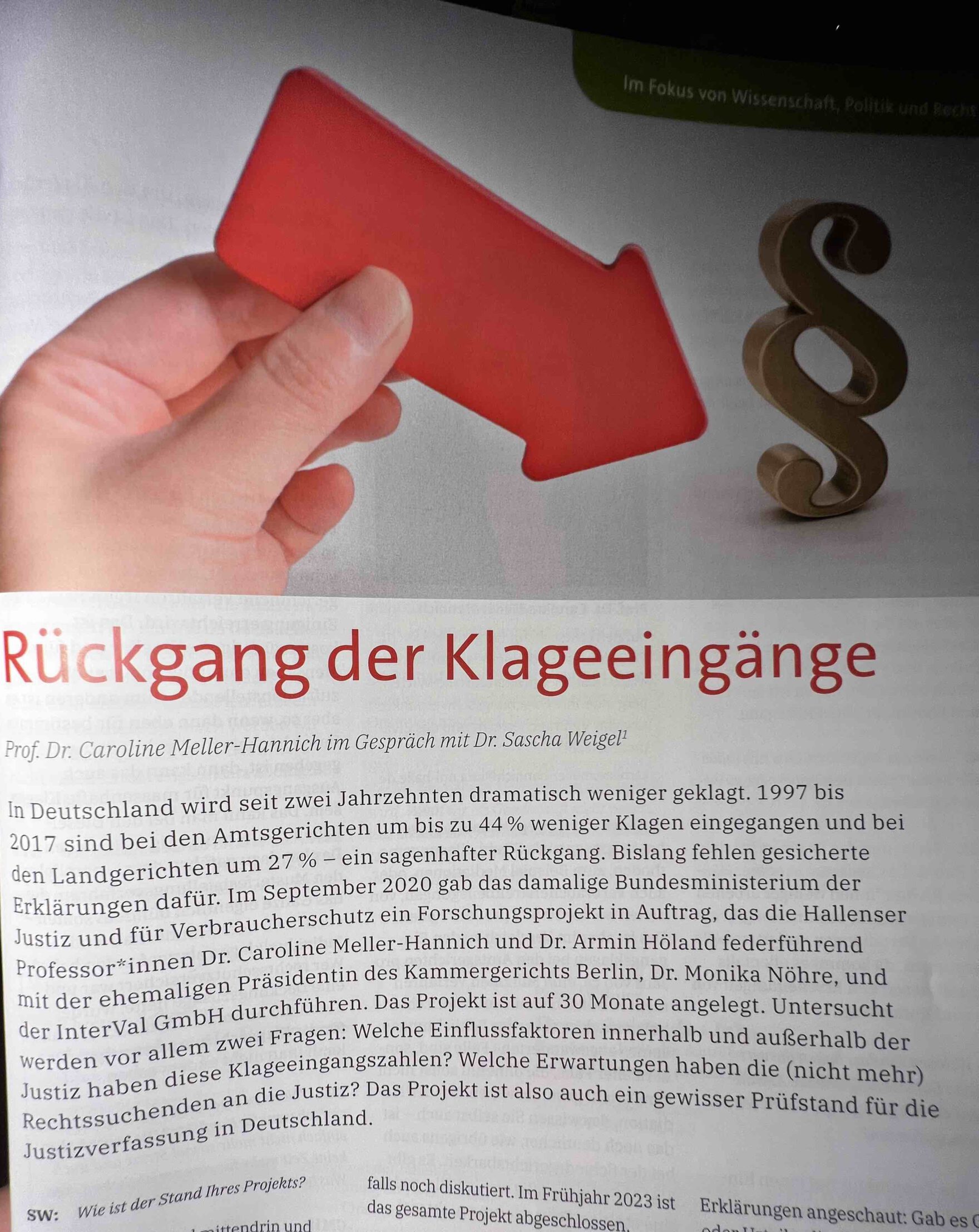No reason to complain?
Explanations for the decline in the number of lawsuits filed with German civil courts
in: Spektrum der Mediation, 88/2022, pp. 56-58.
For a good 25 years, the number of lawsuits filed with the German civil courts has been declining continuously and extremely significantly. The theses presented here make a contribution to the understanding of mediation, which at the same time was praised as an alternative to the courts and promoted by law, although in reality it has fallen far short of expectations.
(extract)
On 8 December 2015, a symposium was held at the Martin Luther University in Halle on the topic of lawsuits filed at German civil courts. The background to this was the realisation that there had been a continuous and significant decline in the number of cases filed at the local and regional courts. The expert discussion on this phenomenon had only recently been initiated.
This decline was particularly significant against the historical background that the experts had been confronted with throughout the previous years. The volume of civil litigation was diametrically different from the 1970s to the 1990s: the constitutionally required access to justice and the courts as a result of congestion and overloading of these courts was worthy of discussion. Solutions were found in the expansion of the judiciary and its financial viability. It was no coincidence, but a direct consequence of this, that the discussion about the "Alternatives to justice" and the reception of American mediation. In general, the legal and socio-political "alternatives" debate focussed on dispute resolution methods that were distant from the courts and were intended to relieve the burden on the judiciary and develop filter and sieve functions so that the judiciary could do its fair work. This era of German The reality of the lawsuit, which was also legally opposed, came to an end at the beginning of the new millennium.
This needs to be clearly visualised: From 1997 to 2017, the number of lawsuits filed at the local courts across Germany fell by an average of 44.41,000,000 and at the regional courts by an average of 27.21,000,000, with the decline being greater in the commercial divisions than in the other civil divisions. This has dramatic consequences not only in terms of a needs-based judicial system, but also for the socio-political question of what the reasons for such fluctuations are. This is currently being analysed in an extensive research project...
Explanatory approach no. 1 - Demography
Explanatory approach no. 2 - Developments in the economy and the labour market
Explanation No. 3 - Low trust in the judiciary
Explanatory approach no. 4 - Costs of legal proceedings
Explanatory approach no. 5 – Legal expenses insurance
Explanatory approach no. 6 - Alternatives to justice
Explanatory approach no. 7 - Changed behaviour of economic players towards customers and consumers
Explanatory approach no. 8 – Changed behaviour of the legal profession
Explanatory approach no. 9 – Change in the population's quarrelling behaviour

Also included in the booklet is a transcribed interview on the topic with Prof Dr Caroline Meller-Hannich, pp. 59-61.
The number of lawsuits filed in Germany has fallen dramatically over the past two decades. In the years from 1997 to 2017, the local courts received up to 44 % fewer lawsuits and the regional courts 27 % fewer. That is an incredible decline. And so far there are no reliable explanations for this. In September 2020, the Federal Ministry of Justice (BMJ) commissioned a research project led by Halle-based professors Dr Caroline Meller-Hannich and Dr Armin Höland together with the former President of the Berlin Court of Appeal, Dr Monika Nöhre, and InterVal GmbH. The project is scheduled to run for thirty months. Two questions in particular will be analysed:
- What factors inside and outside the judiciary influence these figures?
- And what expectations do those seeking or no longer seeking justice have of the judiciary? The project is therefore also a kind of test bed for the constitution of justice in Germany.






Leave A Comment